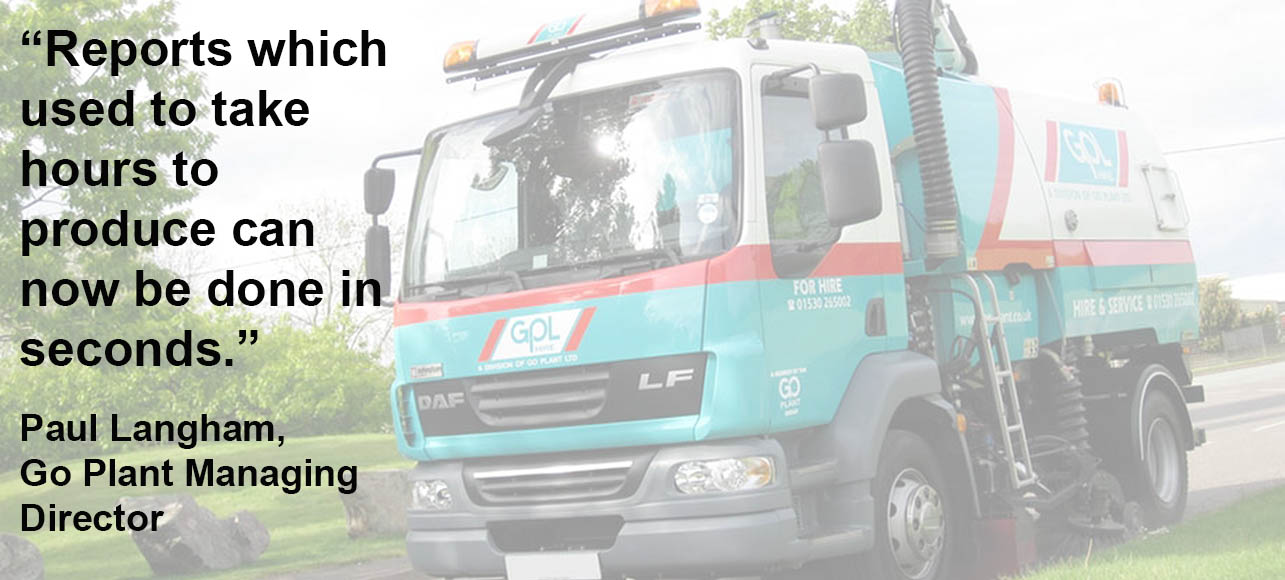Learning Zone
The challenges of managing a fleet with spreadsheets
Is it possible to manage a fleet using only spreadsheets?
We look at ‘spreadsheet fleets’, the benefits of utilising fleet management software and how to make the switch.

It’s often perceived that larger fleets running into hundreds, even thousands of vehicles are the ones that have adopted specific fleet management software. Smaller fleets can tend to rely on a more traditional spreadsheet and paper-based style of management for recording and reporting. But this isn’t always the case. There’s a surprising number of larger fleets that continue to manage their operation solely relying on fleet management spreadsheets.
There’s the saying, ‘if it’s not broken don’t try to fix it’ alongside a consensus towards, ‘we’ve always done it this way,’ which often brings with it resistance to change. Whilst those managing smaller fleets of say, 10 or so vehicles, maybe right in thinking that the cost would outweigh the benefits, there are fleet managers with larger numbers of assets that continue to miss out on the benefits. Due to limitations that spreadsheets can provide, these managers could be potentially putting their fleet at risk both operationally and financially.
Managing a fleet with spreadsheets
Despite the size of a fleet, spreadsheets such as Excel remain the choice of many fleet managers.
Fleet management spreadsheets do have some benefits, and these can include:
- Low implementation costs
- Easy to create and manage with limited knowledge
- Good general employee of knowledge of using spreadsheets
- Relatively easy to input data
But there’s no denying it, there are some serious flaws with using fleet management spreadsheets too.
These are just some of the limitations that can be faced by such ‘spreadsheet fleets’:
- Limited functionality and reporting capabilities.
- Records reactive rather than proactive in dated information being circulated for decision making and reporting.
- Data input delays can result in dated information being circulated for decision making and reporting.
- An increased risk of data inaccuracy due to input errors, illegible writing and missing or incomplete paperwork.
- Tendency for spreadsheets to be designed and created ‘in-house’ which can limit reporting functions.
- Limited ability to integrate with external providers and services.
- Time-bound task to manually input, scan and file paper-based forms.
- Increased administration time to complete processes such as driver licence checking.
What are the advantages of using software instead of spreadsheets?
Fleet management software manages all aspects of a fleet from procurement through to decommissioning. And this management process doesn’t stop at vehicles either; some systems can manage all assets within a business including trailers, machinery and containers.

Specific software keeps all information relating to a fleet within one central system.
This can include:
- Vehicles, assets and equipment
Record, assign and manage any vehicle or asset within your operation - Fuel and emissions
Manage your fleet’s fuel transactions, spend and use tools to identify the best type to reduce both costs and CO2 emissions - Drivers
Improve the visibility and management of your drivers to reduce risk and ensure compliance - Maintenance
Reduce additional downtime, track vehicle availability and manage costs. Vehicle maintenance is further supported through the application of the FleetWave Technician – a technician app to help improve efficiencies and reduce administration - Compliance
Ensure that essential paperwork and documents are completed and stored for auditing purposes in real-time - Accidents
Accident management and tracking to reduce risk
Systems integrate with other providers such as parts suppliers and accounts to carry out tasks including re-ordering and managing invoices and payments. Many processes and reporting procedures can be automated which reduces administrative tasks and boosts operational efficiency.
System capabilities go further beyond that of spreadsheets to help meet with compliance procedures and managing risks such as identifying bad driving behaviour or reduce idling time. Advanced fleet reporting structures coupled with the ability to integrate with governing bodies and authorities such as the DVLA and their driver licence checking service and Earned Recognition scheme support a fully compliant and legal operation.
Choosing fleet management software – what do you need to consider?
So, you’ve taken the decision to include fleet management software within your operation but unsure where to start. That’s unsurprising! Deciding on a fleet management provider can be a minefield, particularly with there being so many to choose from.
How do you decide which one is best for your business? Any system that you do choose needs to perform to the best of its abilities for you in terms of functionality, usability performance.
Where do you start?
A great place is by compiling a list of exactly what you want from a system in terms of what you need it to do.
Here’s a few things that you should consider to help narrow down your selection:
- Size and scope of a system including scalability
- Do you need and an entry-level system comprising of juts the key modules such as FleetWave CORE or a more bespoke, full enterprise level solution?
- Ease of use
- Training availability and the teaching method used
Check to see firstly if this is available and secondly if this will be classroom based or a provision to access online training manuals, videos and guides - Ability to manage integrations
Decide which systems you will need our fleet software to ‘talk to’ such as HR and finance packages. - After sales support
What does this look like and does this support your needs? Check to the hours that support is available and if this fits in with the needs of your operation should a problem arise.
Carrying out desktop research can be a very useful exercise to initially narrow down which system providers could be the best fit for your business. Comparison websites are another useful reference point as much of this work has already been carried out for you. Such sites also provide useful tables listing the key features to help select suitable providers at a glance.
Look for a supplier that updates and upgrades its systems regularly in addition to keeping in top of the latest industry needs. Failure to do this may mean that your system could soon be out of date and miss vital reports needed to help you manage a fully compliant operation. Changes in legislation, product developments and new business best practices can soon impact on the suitability of your system.
Once you have your shortlist of potential suppliers, arrange for a demonstration of their system to gain first-hand experience of what it looks like, how it functions, ease of use and if it does what you need it to do for your fleet.
Is moving from spreadsheets to fleet management software a big task?
Migrating from spreadsheets to a software package can be a big task but by using an established provider, there’ll be specialist project managers and software experts on hand to manage the processes.
Once your information has been imported into a system, you will soon be reaping the rewards that fleet management software brings including reduced administrative tasks, improved visibility across the entire fleet and an intelligent reporting system to help you generate efficiencies and cost savings, delivering a return on your investment.
Look for a provider that invests in continuous product development too. The fleet management industry is always changing as new laws and legislation comes into play which can impact on your system and what you need it to do. There’s nothing worse than purchasing a piece of software and finding out in quite a short space of time that it’s out of date.




